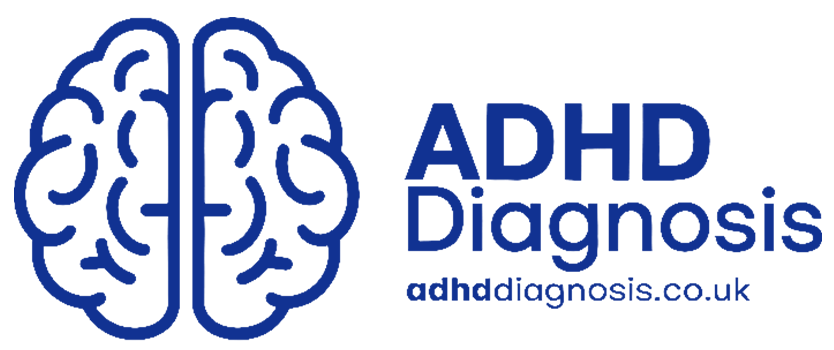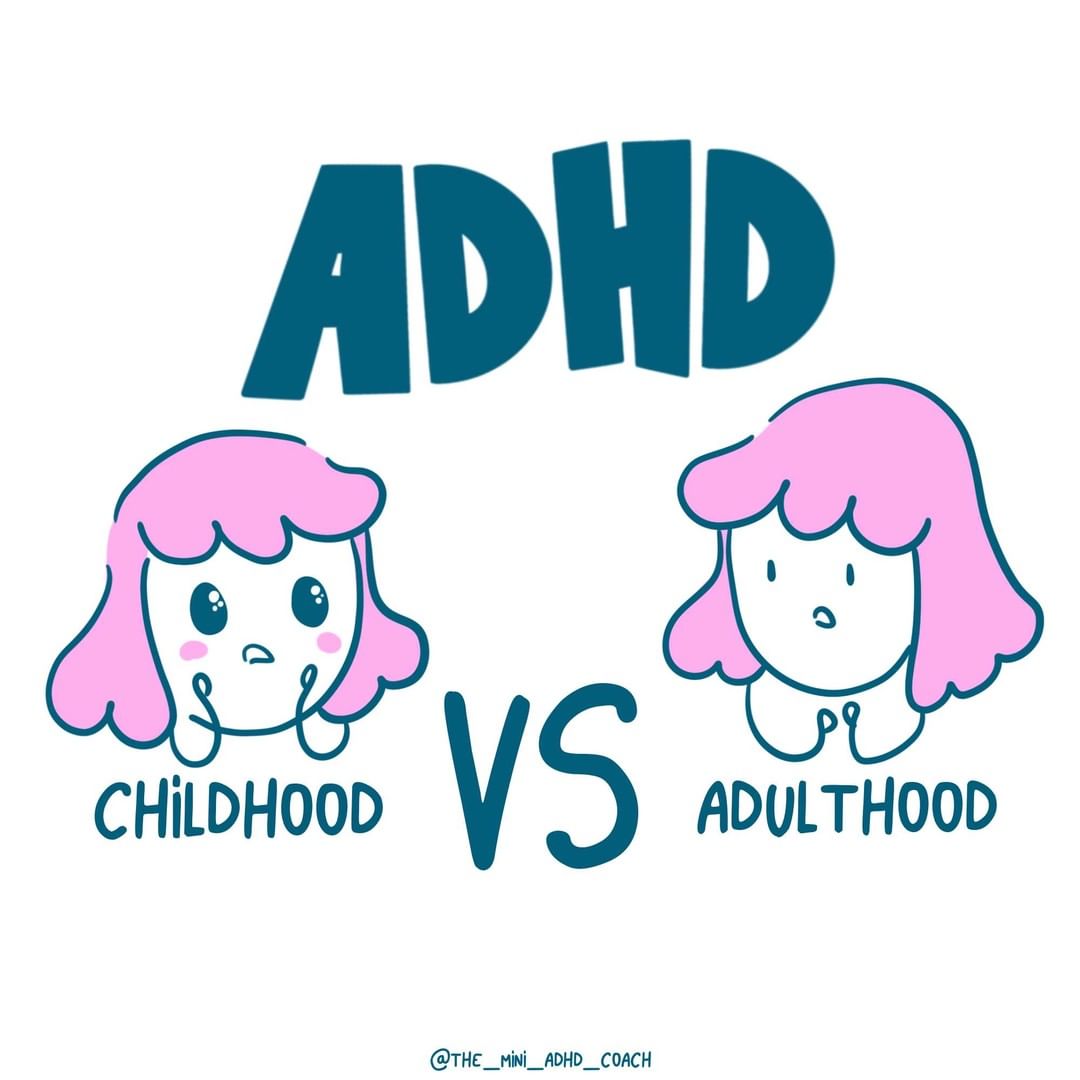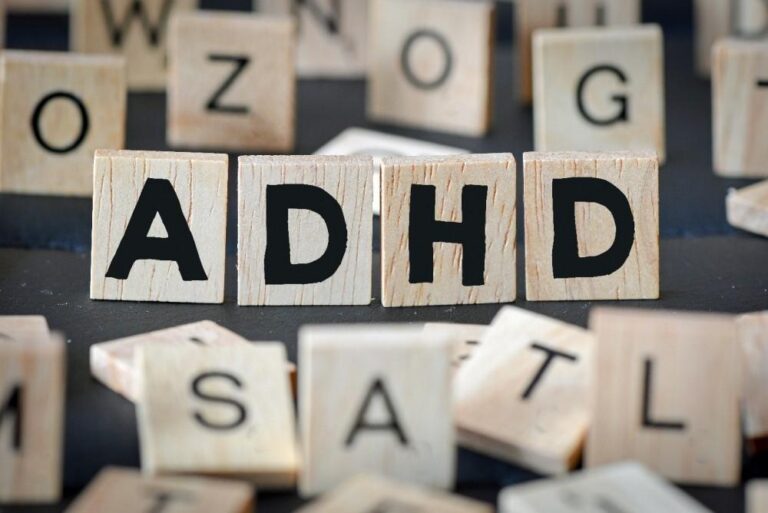Understanding ADHD Across Ages
Attention Deficit Hyperactivity Disorder (ADHD) is a neurodevelopmental condition that affects both children and adults, but it manifests differently depending on age. While the core symptoms of inattention, hyperactivity, and impulsivity are consistent across the lifespan, the way these symptoms present and impact daily life can vary significantly. Understanding these differences is crucial for proper diagnosis, treatment, and support.
Key Differences in ADHD Symptoms: Adults vs. Children
1. Hyperactivity
- In Children:
- Constant fidgeting and difficulty staying seated
- Running or climbing in inappropriate situations
- Excessive talking and interrupting conversations
- In Adults:
- Inner restlessness rather than physical hyperactivity
- Trouble relaxing or sitting still during meetings
- Engaging in risky or impulsive behaviors (e.g., fast driving)
2. Inattention
- In Children:
- Difficulty following instructions
- Losing focus easily in school or play
- Frequently losing items (e.g., school supplies)
- In Adults:
- Trouble with time management and organization
- Difficulty focusing at work or in conversations
- Forgetting appointments and deadlines
3. Impulsivity
- In Children:
- Blurting out answers in class
- Interrupting others during games or conversations
- Difficulty waiting their turn
- In Adults:
- Impulsive spending or risky decision-making
- Trouble maintaining stable relationships
- Difficulty controlling emotional reactions
How ADHD Affects Daily Life
✅ In Children:
- Academic struggles
- Behavioral issues at school
- Difficulty forming friendships
✅ In Adults:
- Career instability and missed deadlines
- Struggles with long-term relationships
- Increased risk of anxiety and depression
Why ADHD Looks Different Over Time
ADHD symptoms tend to shift as the brain matures. In children, hyperactivity and impulsiveness are more prominent because the prefrontal cortex (responsible for executive functions) is still developing. In adults, hyperactivity may decrease, but challenges with attention, emotional regulation, and organization often persist.
Diagnosis Challenges Across Ages
- Children: Diagnosis often follows academic or behavioral struggles at school.
- Adults: Many adults are not diagnosed until later in life when career or relationship challenges highlight underlying issues.
- Misdiagnosis: In adults, ADHD is sometimes mistaken for anxiety, depression, or a personality disorder.
Treatment Approaches
✅ For Children:
- Behavioral therapy
- Classroom accommodations
- Medication (e.g., stimulants)
✅ For Adults:
- Cognitive-behavioral therapy (CBT)
- Time management and organization strategies
- Medication (e.g., stimulants and non-stimulants)
Title: How ADHD Affects Daily Life: Real-Life Stories
Understanding ADHD Through Real-Life Experiences
Attention Deficit Hyperactivity Disorder (ADHD) affects millions of people across the UK, influencing how they focus, organise tasks, and manage emotions. While ADHD is often discussed in clinical terms, real-life experiences provide a deeper understanding of how it impacts daily life. In this article, we explore the personal stories of individuals living with ADHD to shed light on the challenges and triumphs they face every day.
How ADHD Shows Up in Daily Life
ADHD affects people in different ways, but common challenges include:
✅ Difficulty staying focused on tasks
✅ Trouble managing time and meeting deadlines
✅ Struggles with organisation and memory
✅ Impulsive decision-making
✅ Emotional ups and downs
Real-life experiences highlight these struggles — and the resilience of those learning to manage them.
🔎 Story #1: Sarah’s Battle with Focus at Work
Sarah, a 32-year-old marketing executive, always knew she had trouble focusing. In meetings, her mind would wander, and she often missed key details.
“I’d start working on a project and get distracted by emails, then forget what I was doing. It felt like my brain was working against me.”
After being diagnosed with ADHD, Sarah began using time-blocking techniques and medication to manage her symptoms. Today, she feels more in control of her workload and has improved her productivity.
👉 Lesson: ADHD can make focus and task completion difficult, but structured strategies like time management can help.
🎯 Story #2: Mark’s Struggle with Impulsiveness in Relationships
Mark, a 28-year-old teacher, noticed that his impulsive behaviour was causing problems in his personal life.
“I would interrupt my partner constantly or make decisions without thinking things through. It created tension and misunderstandings.”
Through cognitive-behavioural therapy (CBT) and learning mindfulness techniques, Mark became more aware of his impulsiveness and improved his communication skills. His relationships are now stronger and more balanced.
👉 Lesson: Impulsiveness is a common ADHD trait, but with therapy and self-awareness, it can be managed.
📅 Story #3: Emma’s Challenge with Time Management
Emma, a university student, struggled to keep up with her coursework and missed several deadlines.
“I would start studying, but then I’d get distracted by social media or random thoughts. Before I knew it, hours had passed, and nothing was done.”
Emma started using a planner and breaking tasks into smaller steps. She also worked with an ADHD coach to develop better study habits. Her grades improved, and she felt less overwhelmed.
👉 Lesson: Breaking tasks into smaller steps and using planning tools can make time management easier for people with ADHD.
🌊 Story #4: David’s Emotional Rollercoaster
David, a 40-year-old father of two, found himself overwhelmed by emotional outbursts.
“Small things would set me off — traffic, noise, or a change of plans. I felt like I was always on edge.”
David’s diagnosis helped him understand his emotional regulation challenges. Through therapy and medication, he learned how to pause and reflect before reacting. He now feels more in control of his emotions and relationships.
👉 Lesson: Emotional dysregulation is common with ADHD, but understanding triggers and developing coping strategies can help.
🌟 How These Stories Can Inspire You
These real-life experiences highlight the varied and personal nature of ADHD. While the symptoms of ADHD can create obstacles in daily life, understanding the condition and seeking the right support can lead to significant improvements.
✅ How to Manage ADHD in Daily Life
Here are practical strategies that have helped people with ADHD:
- Create structured routines and stick to them
- Break large tasks into smaller, manageable steps
- Use reminders and planners to stay organised
- Practise mindfulness and stress-reduction techniques
- Seek professional guidance through therapy and medication
💡 Take the Next Step Towards Managing ADHD
If you or someone you know is struggling with ADHD symptoms, you’re not alone. Real-life stories show that managing ADHD is possible with the right support and strategies.
👉 Ready to take control of your ADHD journey? Visit ADHDDiagnosis.co.uk to book an appointment with our specialists today!
Title: Signs You Might Have ADHD – When to Seek Help
Could You Have ADHD?
Attention Deficit Hyperactivity Disorder (ADHD) is often associated with children, but it affects adults too. Many people struggle with focus, organisation, and impulsiveness without realising that these could be signs of ADHD. Understanding the key symptoms and knowing when to seek help can be the first step towards improving your quality of life.
In this article, we’ll explore the common signs of ADHD and when it might be time to reach out for professional support.
What is ADHD?
ADHD is a neurodevelopmental disorder that affects how the brain regulates attention, focus, and impulse control. It can impact daily life, relationships, work performance, and overall mental health.
ADHD symptoms typically fall into three main categories:
- Inattention – Difficulty focusing, staying organised, and following through with tasks.
- Hyperactivity – Excessive movement, restlessness, and difficulty sitting still.
- Impulsiveness – Acting without thinking and struggling with self-control.
Common Signs of ADHD
If you recognise some of the following signs in yourself or someone you know, it could indicate ADHD:
🔎 1. Trouble Focusing and Staying Organised
- Frequently losing track of time or deadlines
- Difficulty following conversations or instructions
- Procrastinating or leaving tasks unfinished
- Losing important items like keys, phones, or wallets
🚀 2. Hyperactivity and Restlessness
- Feeling constantly on the go or unable to relax
- Fidgeting or tapping your hands and feet
- Talking excessively or interrupting others
- Finding it difficult to stay seated during meetings or classes
⚡ 3. Impulsiveness and Poor Decision-Making
- Interrupting others or blurting out answers
- Making snap decisions without considering the consequences
- Struggling with self-control in emotional situations
- Engaging in risky behaviours, such as reckless driving or overspending
😔 4. Emotional Sensitivity and Mood Swings
- Difficulty managing frustration or anger
- Feeling overwhelmed by small problems
- Experiencing low self-esteem or negative self-talk
- Sensitivity to criticism or rejection
💤 5. Forgetfulness and Poor Time Management
- Missing appointments or social events
- Forgetting to pay bills or complete important tasks
- Struggling to stick to a schedule or meet deadlines
- Relying on last-minute efforts to complete work
How ADHD Affects Daily Life
ADHD can impact many areas of life, including:
✅ Work and Career: Trouble meeting deadlines, staying organised, and maintaining focus in meetings.
✅ Relationships: Misunderstandings and frustration due to impulsiveness or inattentiveness.
✅ Mental Health: Increased risk of anxiety, depression, and low self-esteem.
✅ Everyday Tasks: Difficulty keeping track of bills, appointments, and household responsibilities.
When to Seek Help for ADHD
It’s normal to experience some of the above issues occasionally, but if these challenges are persistent and interfere with your daily life, it may be time to seek help.
You should consider speaking to a professional if:
- These symptoms have lasted for six months or longer.
- Your work, relationships, or self-esteem are suffering.
- You’ve tried to manage these issues on your own without success.
- Your symptoms are causing stress, anxiety, or depression.
How is ADHD Diagnosed?
ADHD is typically diagnosed through a combination of:
- Clinical Interviews: A mental health professional will assess your symptoms and history.
- Questionnaires: Standardised tests to measure attention, impulsiveness, and hyperactivity.
- Feedback from Others: Input from family members or colleagues can provide valuable insights.
✅ Treatment Options for ADHD
ADHD can be effectively managed with a combination of treatments:
- Medication: Stimulants and non-stimulants can help improve focus and reduce impulsiveness.
- Therapy: Cognitive-behavioural therapy (CBT) can help develop coping strategies and improve emotional regulation.
- Lifestyle Changes: Improved sleep, exercise, and diet can support better focus and emotional balance.
- Coaching and Support: ADHD coaches can provide guidance on organisation and time management.
🌟 Take Control of Your ADHD Symptoms
Recognising the signs of ADHD is the first step towards managing it effectively. ADHD doesn’t have to control your life — with the right support, you can learn to manage your symptoms and thrive.
💡 Ready to Take the Next Step?
If you think you might have ADHD, getting a professional diagnosis is the key to understanding your symptoms and finding the right treatment.
👉 Visit ADHDDiagnosis.co.uk to book an appointment with our specialists today and take the first step towards a more focused and balanced life







